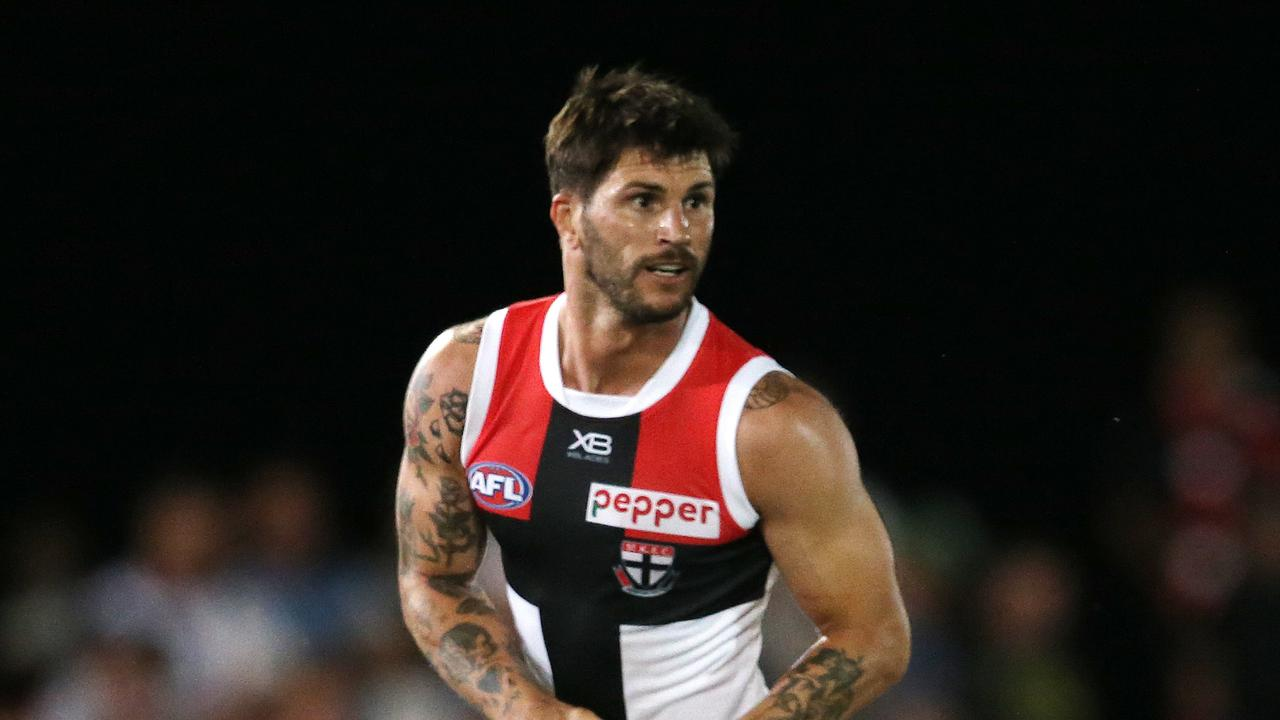Home Telerehabilitation for Traumatic Brain Injury Recovery: A Complete Guide
Home Telerehabilitation for Traumatic Brain Injury Recovery: A Complete Guide
Key Takeaways
- Home-based telerehabilitation provides accessible remote PT, OT and cognitive rehab for TBI survivors.
- Virtual occupational therapy and remote physical exercises can be tailored to individual needs.
- Essential home equipment includes resistance bands, therapy putty, balance pads and tablet apps.
- Choosing the right telemedicine platform and understanding costs/insurance coverage is critical.
- Start by consulting a rehabilitation specialist for a personalized telerehab plan.
Traumatic brain injury (TBI) incidents continue to rise, yet many survivors face significant barriers to traditional rehabilitation services. Home-based telerehabilitation for traumatic brain injury recovery offers a promising solution by delivering specialized care directly to patients through digital platforms. This innovative approach effectively bridges gaps in access, reduces costs, and maintains continuity of care for those recovering from TBI. As remote rehabilitation technology advances, more patients can receive expert guidance without the challenges of transportation, mobility limitations, or geographical constraints.
Benefits of Home-Based Telerehabilitation for TBI Recovery
Home-based telerehabilitation is transforming how traumatic brain injury (TBI) survivors access therapy. As TBI incidence rises across the country, many patients face significant barriers to traditional rehabilitation, including transportation challenges, mobility limitations, and specialist shortages.
"The rise in traumatic brain injury cases, coupled with access barriers to traditional rehabilitation, makes telerehabilitation an increasingly critical option," explains Dr. Sarah Chen, neurological rehabilitation specialist. "Remote therapy allows patients to maintain consistent care when in-person visits aren't feasible."
Improved Accessibility for TBI Survivors
For many TBI survivors, simply getting to appointments presents a major hurdle. Telerehabilitation programs for TBI survivors at home eliminate transportation barriers, which is particularly valuable for those with mobility challenges or those living in rural areas.
"I couldn't drive after my injury, and taking public transportation was overwhelming due to my sensory processing issues," shares Michael, a 34-year-old TBI survivor. "Home telerehab meant I could access therapy without the exhaustion of travel, which actually made me more present during sessions."
According to a systematic review published in the Journal of Head Trauma Rehabilitation, home-based telerehab delivers functional gains in mobility, balance, and cognitive domains comparable to in-person rehabilitation, while reporting high patient satisfaction and adherence rates.
Personalized Virtual Care Tailored to Brain Injury
Virtual occupational therapy after brain injury offers customized approaches that adapt to each patient's unique challenges and home environment.
"We can see patients in their actual living spaces, which gives us incredible insight," notes Eliza Montgomery, OTR/L. "I can suggest real-time modifications to their home setup that directly address their specific challenges—something I couldn't do as effectively in a clinic."
This personalization extends to all aspects of care:
- Tailored exercise programs based on home space and available objects
- Custom cognitive strategies relevant to the patient's daily routine
- Adaptive techniques that work with the individual's home setup
Flexible Scheduling and Enhanced Engagement
Remote physical therapy exercises for TBI recovery offer flexibility that traditional clinic visits cannot match. Sessions can be scheduled outside standard business hours, making it easier for working patients or those who depend on caregivers with busy schedules.
Digital platforms enhance engagement through:
- Live feedback during exercise performance
- Session recordings for review and practice
- Progress tracking dashboards
- Gamified therapy applications that boost motivation
"Our analysis shows that telerehabilitation patients often have better adherence to their home exercise programs," says Dr. Robert Patel, rehabilitation researcher. "The convenience factor combined with digital accountability tools makes a significant difference."
Virtual Occupational Therapy After Brain Injury
Occupational therapy plays a crucial role in helping TBI survivors regain independence in daily activities. Virtual delivery of these services has evolved significantly, with specialized approaches for the brain injury population.
Key Techniques and Digital Tools
Virtual occupational therapy leverages various digital tools to address fine motor skills, cognitive function, and daily living activities:
- Virtual reality applications: Programs that simulate everyday tasks like cooking or shopping
- Touchscreen coordination apps: Digital versions of traditional fine motor activities
- Video analysis software: Tools that allow therapists to analyze movement patterns in slow motion
- Adaptive technology training: Remote instruction on using assistive devices
According to the American Occupational Therapy Association's telehealth guidelines, digital fine-motor tools such as virtual putty apps and interactive hand-tracking software have shown promising results for TBI patients.
"We've moved beyond simple video calls," explains Dana Rodriguez, OTR/L. "Today's virtual OT for brain injury utilizes sophisticated platforms that can track minute improvements in reaction time, coordination, and task sequencing."
Best Apps for Virtual Occupational Therapy After Traumatic Brain Injury
Several platforms stand out for their effectiveness in TBI rehabilitation:
- Constant Therapy: Evidence-based cognitive, language, and speech exercises with progress tracking
- Dexteria: Fine motor skill development with customizable difficulty levels
- AOTA-recommended therapy apps: Task-specific applications that address various cognitive domains
- BrainHQ: Cognitive training programs with TBI-specific exercise paths
"What makes these platforms effective is their ability to adapt to the individual's performance," notes cognitive rehabilitation specialist Dr. Amara Jackson. "The progressive challenge levels keep patients working at their optimal therapeutic threshold."
Tracking Progress Remotely
Virtual occupational therapy includes sophisticated methods for monitoring improvement:
- Standardized assessment tools administered via telehealth
- Digital dashboards tracking performance metrics
- Video recording comparison over time
- Remote monitoring of activity completion between sessions
"We can actually collect more data points through telehealth platforms than in traditional therapy," explains Dr. Thomas Wright. "This allows us to make more nuanced adjustments to treatment plans based on objective measurements."
Remote Physical Therapy Exercises for TBI
Physical therapy is essential for addressing the motor, balance, and coordination deficits common after traumatic brain injury. Remote delivery of these services requires thoughtful exercise selection and safety protocols.
Recommended Home Exercises for Mobility and Strength
Remote physical therapy exercises for TBI often focus on functional movements that improve daily living abilities:
Balance Exercises:
- Seated weight shifts progressing to standing
- Modified tandem stance with countertop support
- Single-leg balance with visual tracking challenges
Strength Building:
- Seated marching with progressive resistance
- Wall slides for lower extremity strengthening
- Trunk rotations with household objects as weights
Coordination Activities:
- Ball-tossing with varied trajectories
- Targeted reaching exercises
- Stepping patterns with directional changes
"The key is starting where the patient is comfortable and gradually increasing challenge," advises physical therapist Jennifer Santos, PT, DPT. "Remote PT allows us to observe how patients move in their natural environment, which often differs from a clinical setting."
Home Exercise Equipment for TBI Rehabilitation
Effective home exercise equipment for TBI rehabilitation doesn't need to be expensive or complex:
Essential Items:
- Resistance bands of varying tensions
- Therapy putty for hand strengthening
- Balance pad or folded towel for proprioceptive training
- Stability ball (appropriately sized)
- Step stool for step-ups
Helpful Additions:
- Wobble board or balance disk
- Light hand weights or household substitutes
- Timer for endurance training
- Mirror for movement feedback
The American Physical Therapy Association's telehealth guidelines recommend these items as core components of a home therapy program, noting their versatility and safety for TBI patients.
Safety Considerations During Remote PT
Safety remains paramount in telerehabilitation:
- Pre-session environment checks to remove hazards
- Clear emergency protocols established before beginning
- Caregiver presence for higher-risk activities
- Strategic furniture placement for support
- Modified exercises based on home safety assessment
"We always begin with a virtual home assessment," explains rehabilitation specialist Dr. Leila Martinez. "This allows us to identify potential risks and recommend modifications before starting any physical program."
Telehealth Cognitive Rehabilitation for Traumatic Brain Injury
Cognitive challenges are among the most persistent symptoms following TBI. Telehealth cognitive rehab for traumatic brain injury addresses attention, memory, executive function, and processing speed deficits.
Telehealth Cognitive Rehab Approaches
Several evidence-based approaches translate effectively to remote delivery:
Compensatory Strategy Training:
- Digital organization systems
- Virtual memory notebooks
- Electronic medication reminders
- Screen-shared visual planning tools
Direct Cognitive Training:
- Structured attention exercises with online platforms
- Virtual working memory activities
- Problem-solving scenarios via interactive applications
- Processing speed challenges with timing elements
"The digital nature of telehealth cognitive rehab actually provides unique advantages," notes neuropsychologist Dr. Alison Berg. "We can precisely control stimulus presentation timing, track responses down to the millisecond, and create progressive difficulty levels that adapt to performance."
Best Telehealth Platforms for Brain Injury Recovery
The best telemedicine platforms for brain injury recovery offer specialized features:
Key Platform Requirements:
- HIPAA-compliant secure video connection
- Interactive screen-sharing capabilities
- Integrated cognitive assessment tools
- Progress tracking dashboards
- Accessibility features for those with visual or motor limitations
Top-Rated Platforms:
- BrainCheck: Cognitive assessment and training with clinical interpretation
- Cognifit: Adaptive cognitive training with TBI-specific modules
- Teladoc Neurological Care: Specialized neurorehabilitation services
- NeuroRehab VR: Virtual reality cognitive rehabilitation
"Platform selection should be guided by the patient's specific cognitive profile," advises Dr. Carlos Mendez. "Different systems excel at addressing particular cognitive domains."
Measuring Cognitive Improvements Remotely
Telehealth platforms offer sophisticated assessment tools:
- Computerized neuropsychological testing
- Digital versions of standard cognitive assessments
- Real-time performance metrics
- Ecological validity measures (real-world function)
"We're moving beyond simple test scores," explains cognitive rehabilitation specialist Dr. Nina Patel. "Today's telehealth platforms can measure improvements in functional activities like medication management or bill paying—tasks that directly impact independence."
Cost of Home-Based TBI Teletherapy
Understanding the cost of home-based TBI teletherapy helps patients make informed decisions about their care options.
Average Pricing and Fee Structures
Telerehabilitation costs vary based on several factors:
Typical Fee Ranges:
- Initial evaluation: $150-300
- Individual therapy sessions: $75-200 per hour
- Group teletherapy: $30-75 per session
- Subscription-based platforms: $50-200 monthly
"Many providers offer package deals that reduce per-session costs," notes healthcare advocate Maria Johnson. "Ask about bundled pricing if you anticipate needing ongoing care."
Insurance Coverage and Reimbursement
Insurance coverage for telerehabilitation has expanded significantly:
"The landscape of telehealth coverage continues to evolve," explains medical billing specialist Robert Chen. "Medicare now covers many telehealth services for TBI rehabilitation, though specific coverage varies by plan."
According to the Medicare Telemedicine Health Care Provider Fact Sheet, telerehabilitation services may be billed using specific CPT codes with the telehealth modifier. Private insurers typically follow similar guidelines, though coverage varies by policy.
Key reimbursement considerations include:
- Prior authorization requirements
- Visit limitations per benefit period
- Provider network restrictions
- State-specific telehealth parity laws
Tips to Reduce Teletherapy Costs
Several strategies can make telerehabilitation more affordable:
- Ask about sliding scale fees based on income
- Investigate community grant programs for TBI survivors
- Consider university training clinics that offer supervised telerehabilitation
- Explore bundled payment options that reduce per-session costs
- Check with brain injury associations for financial assistance programs
"Don't overlook health savings accounts or flexible spending arrangements," advises financial counselor Patricia Hernandez. "These pre-tax options can effectively reduce your out-of-pocket costs for eligible telerehabilitation services."
Selecting the Right Telemedicine Platform
Choosing the appropriate telehealth platform significantly impacts the rehabilitation experience for TBI survivors.
Must-Have Features for TBI Rehab
The best telemedicine platforms for brain injury recovery include:
Technical Requirements:
- HIPAA-compliant secure video connection
- Stable performance on various internet speeds
- Compatibility with multiple devices (tablet, phone, computer)
- Electronic health record integration
Accessibility Features:
- Simple user interface for those with cognitive challenges
- Text size adjustment options
- High-contrast display settings
- Screen reader compatibility
- Recording capabilities for reviewing instructions later
"The platform should accommodate the patient's specific challenges," emphasizes accessibility specialist Jordan Williams. "For someone with visual processing issues after TBI, a cluttered interface could significantly hinder their therapy experience."
Comparing Top Telehealth Platforms
Several platforms stand out for TBI rehabilitation:
Platform A: Doxy.me
- Pros: No downloads required, simple interface, free basic version
- Cons: Limited integrated assessment tools, basic features only
Platform B: VSee
- Pros: HIPAA-compliant, integrated vital sign monitoring, medical device compatibility
- Cons: Higher cost, steeper learning curve
Platform C: Zoom for Healthcare
- Pros: Familiar interface, reliable connection, breakout room capability for group therapy
- Cons: Requires download, security setup needed
"Different platforms excel in different aspects of care," notes telehealth consultant Dr. Jasmine Patel. "A platform that works well for physical therapy might not be ideal for cognitive rehabilitation."
User Experience and Support
The user-friendliness of telehealth platforms varies considerably:
- Technical support availability and response time
- Training resources for patients and caregivers
- Troubleshooting guides and tutorials
- Backup communication methods when technical issues arise
"Ask potential providers about their technical onboarding process," suggests TBI support group leader Thomas Rodriguez. "The best programs offer practice sessions to ensure you're comfortable with the technology before therapy begins."
Family member feedback reveals that platforms with dedicated technical support personnel specifically trained in working with cognitive challenges tend to provide better experiences for TBI patients and their caregivers.
Conclusion
Home-based telerehabilitation represents a significant advancement in traumatic brain injury recovery, combining the benefits of specialized care with the comfort and convenience of the home environment. By integrating virtual occupational therapy, remote physical rehabilitation exercises, and telehealth cognitive training, patients can access comprehensive TBI care regardless of location or mobility constraints. The technology continues to evolve, offering increasingly sophisticated tools to monitor progress and enhance outcomes. For those recovering from traumatic brain injury, these telerehabilitation approaches offer not just convenience, but genuine hope for improved function and quality of life. Consult with your healthcare provider today to design a personalized home telerehabilitation program tailored to your specific needs and explore the recommended telehealth platforms that can best support your recovery journey.























